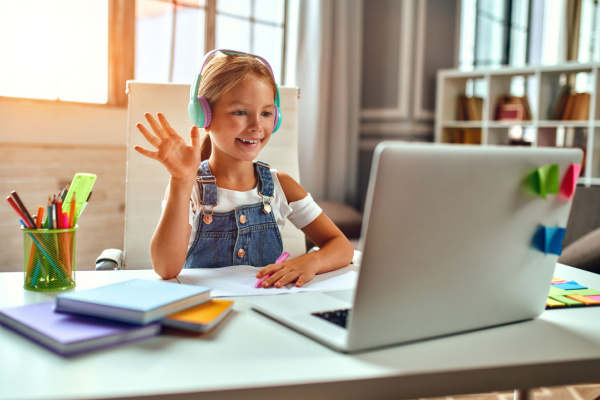Life as we know it has changed for many due to the evolving pandemic. For many, new restrictions and lockdowns are in place and with them a host of challenges to navigate.
While lockdowns are challenging for everyone, getting through lockdown while juggling parenting, work, study and/or remote leaning, can be extremely tough.

Managing lockdown with young children
While we continue to navigate lockdowns and restrictions, we have a few tips to help those with children at home during lockdown to get through these difficult periods.
Create a schedule: While normal life might feel like it has disappeared, routines and schedules don’t have to. In fact, keeping a healthy routine in place can go a long way toward helping everyone know what is expected. Periods of uncertainty can result in children acting out (more on that later in this article), but having an understanding of what’s coming next helps everyone to feel more secure and safe. A good schedule will also enable you to carve out work time while children are busy with their own tasks. Make a timetable to display that is clear and fun, using images for children who cannot yet read. It can be helpful to pre-make lunches and snacks too.
Create an educational play station: Just like a work station can help adults work more effectively at home, a play station can be a perfect place for children to know they can go to learn and have fun. Set aside a table or desk and chair for your child and have a range of things they can engage with ready to go. This might be sensory items to explore, blocks to build with and more. Create time for children to go outside and collect natural resources to add to their play station and extend their own learning.
Daily themes for extra fun: The days can be long in lockdown but creating a theme for the day can be fun. Have something to celebrate each day. It might be a dress up day, such as where everyone chooses to dress as their favourite character from a movie or book. Or have a night outside by the fire, where you rug up at the end of the day and look at the stars together.
Prioritise getting out and about: In amongst activities, getting out and about is important for everyone, every day — no matter how old you are. Give eyes a break from screens, breath in some fresh air and get your body moving and blood flowing. The benefits of physical activity and time spent outdoors are undeniable. Start the day with some family exercise and add some in around lunchtime or into the afternoon for a well-balanced day.
Screen time for children in lockdown
For many children, screens are a part of their lives from a young age. According to Dr Kristy Goodwin, “these days, by the time a child turns eight, one full year of their life has been spent with digital technologies”. In lockdown, screens are likely to be used more than usual due to children undertaking remote learning or parents needing to entertain children while they work.
Make sure that during the time that children are using screens, that they are engaged in high quality apps and media that are safe. Check individual apps capabilities and your settings to ensure children are safe online too.
When it comes to managing time on screens, having a timer can help make the transition off screens a smooth one. Let children know when the time is coming to an end and have something enjoyable waiting for them, such as a favourite snack or a play outside to make it more appealing.
Tackling children’s behaviour
Young children can often express their feelings through their behaviour. This means that a child who isn’t listening or seems to be behaving poorly may be feeling anxious, frustrated or uncertain.
A child’s challenging behaviour might include:
- Ignoring you
- Being unkind to others
- Angry or upset outbursts
- Refusing to go to sleep
- Kicking or hitting
The first step to understanding what a child is going through during lockdown and helping to overcome this behaviour, is to take the time to talk about it. Rather than while they are in the midst of an outburst or tantrum, make the time to talk when everyone if feeling calm.
It can even help to have a chat while doing a quiet activity they enjoy, such as colouring in or drawing. Use simple age-appropriate language to let a child know that you have noticed the behaviour. In a non-judgemental way, explain why it’s not okay and ask why they think it might be happening.
Let children know that they’re feelings are valid, even if their actions are not appropriate, and that they are loved and safe.
Wellbeing support for children and carers
If lockdown with young children is proving challenging and you are in need of support, make sure you reach out. Talk to your employer if you require some understanding or flexibility during this time. Speak to family and friends about what you’re going through, and even organise your family and friends to have chats with your children via phone or video call, depending on their age.
Remember, resources are available for mental health and wellbeing, many of which we have compiled here. It’s also worth considering getting in touch with a doctor or mental health professional who can offer other suggestions or treatment plans that may be necessary to support you through this difficult time.
Take each day as it comes, and know that we will get through this together.



